Eight months later, Indian farmers still struggling to make their voices heard
After eight long months of demonstrations, 11 rounds of inconclusive talks with the Narendra Modi government, and over 400 deaths, thousands of Indian farmers are still not backing out of their protest against the newly introduced farm laws in the country.
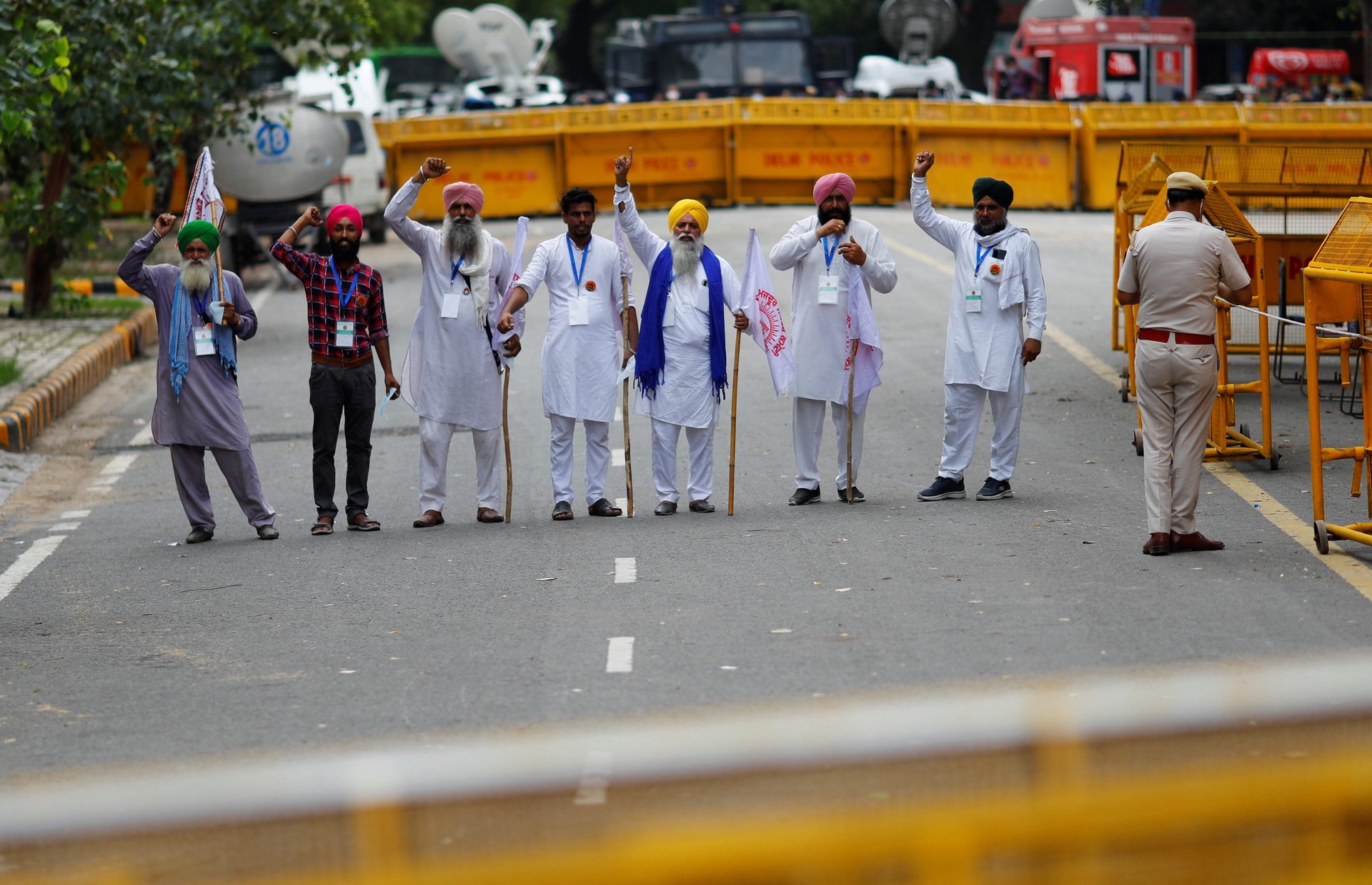

After eight long months of demonstrations, 11 rounds of inconclusive talks with the Narendra Modi government, and over 400 deaths, thousands of Indian farmers are still not backing out of their protest against the newly introduced farm laws in the country.
On July 22, around 200 farmers sat at the parliament premises, hoping to get the government’s attention and make their voices heard.
“From today, every day till monsoon [session of the parliament] ends, 200 farmer protestors will hold demonstrations outside the parliament with their only demand to repeal farm laws,” the farmers stated on July 22. However, they also ensured that the “protests will be peaceful and every protestor will have an identification badge.”
Since last year, thousands of Indian farmers have been protesting against three new laws, which they believe will make them vulnerable against large corporate houses such as Reliance and the Adani.
Farmers’ parliament vs the Indian parliament
Disappointed with the response of Modi’s ruling Bhartiya Janata Party (BJP), the protesting farmers at the parliament also decided to come up with their own parliamentary session, to spread awareness and to discuss why the government’s new laws aren’t good enough and must be repealed.
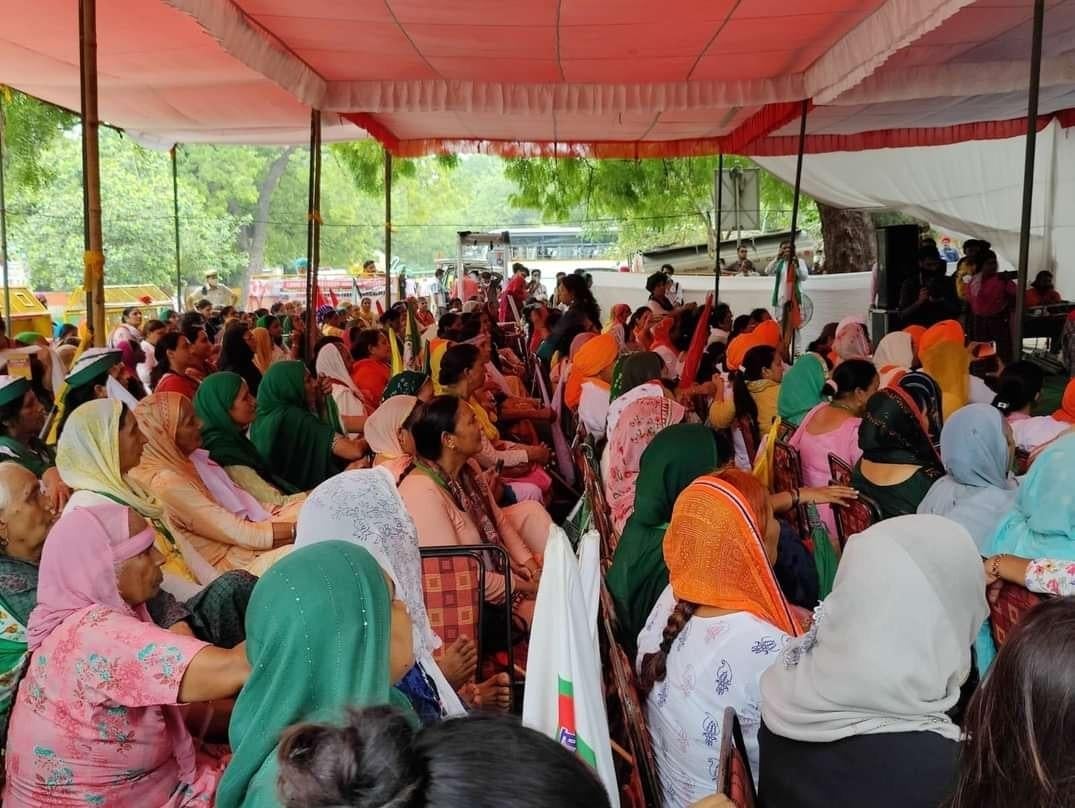

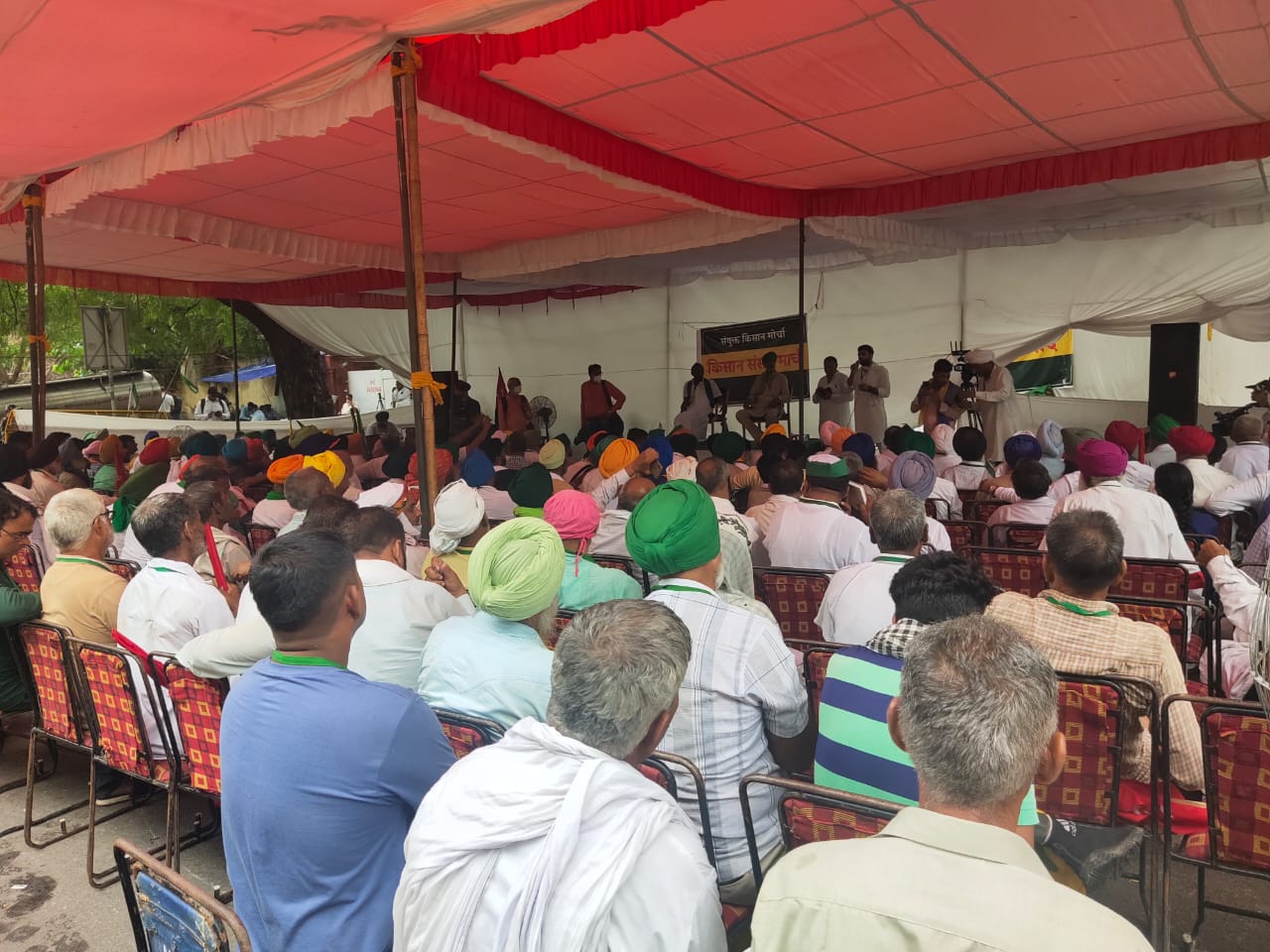
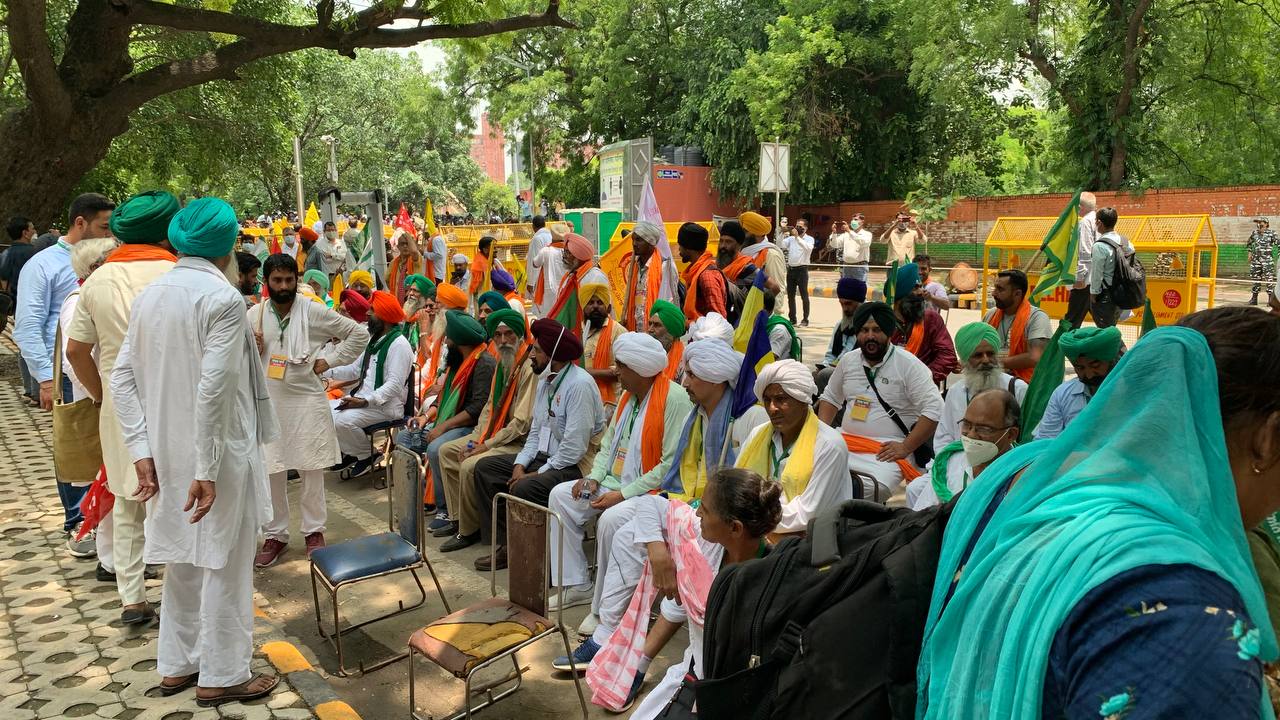
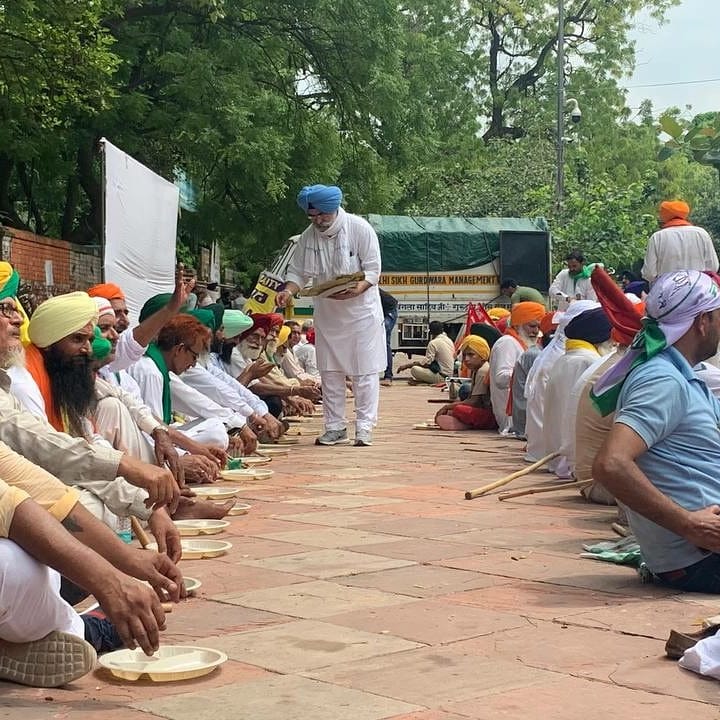
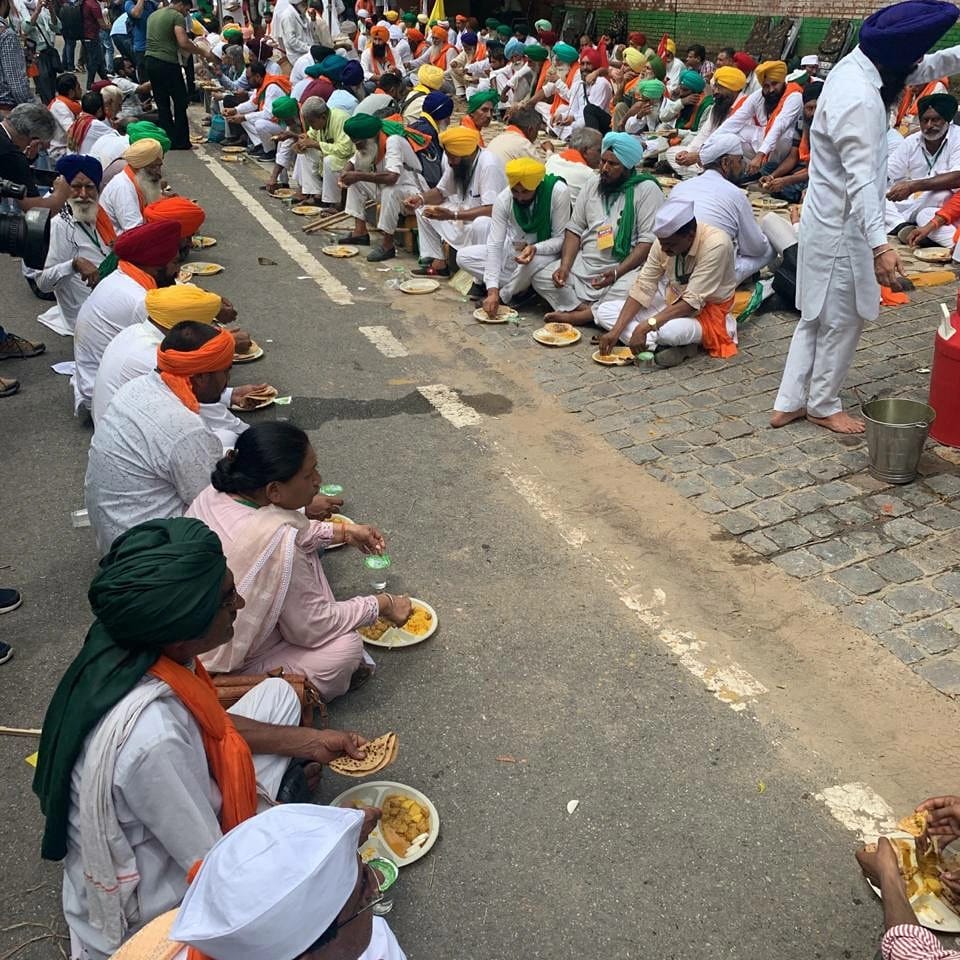
Meanwhile, several politicians, including the Congress party chief Rahul Gandhi, have shown solidarity with the protestors.
What will the farmers do next?
After the ongoing parliament session gets over, the protesting farmers plan to take their protests in the election-bound states of Uttar Pradesh and Uttarakhand.
“All roads leading to Lucknow. Uttar Pradesh’s capital, will be sealed by farmers after Sept. 05,” said Bharatiya Kisan Union leader Rakesh Tikait on July 26.
Meanwhile, to keep the momentum going, volunteers are organising different activities at protesting sites.